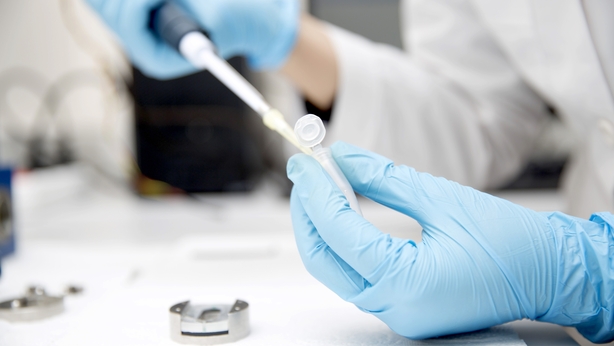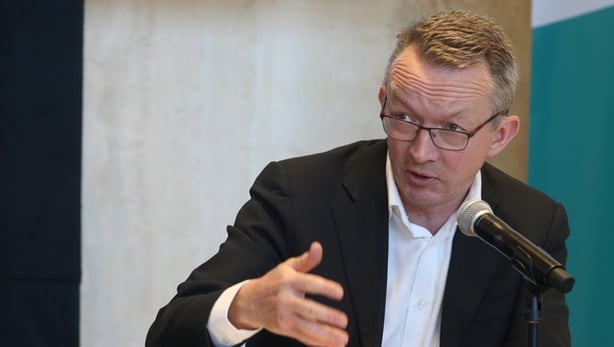The Health Service Executive has set out its plan on how it will carry out testing and contact tracing over the coming months, with an aim to increase testing capacity and have a turnaround time of three days from referral to the contact tracing process being completed.
Speaking at a media briefing this morning, HSE Chief Executive Paul Reid said almost 270,000 tests have been carried out so far, and outlined targets for the health service from next week.
Mr Reid said he had never seen "so much change" happen so quickly across the HSE as it responds to the crisis, however, he said it needs "to improve" further with testing and tracing.
He said a document due to be published today focuses on increasing testing capacity and improving turnaround times.
"The time it takes from taking a swab from a person to get a result. The second is an end-to-end turnaround time," he said, adding that it is all driven by public health guidelines.
He said test results are currently running at around 3% positivity, and those who test negative will receive their results within two days.
The HSE is providing an update on coronavirus testing and contact tracing | Live #Covid19 blog: https://t.co/fyCoOzlWkT https://t.co/mUaTq1atMk
— RTÉ News (@rtenews) May 14, 2020
He said 90% of those who test positive will be contacted the following day, and their contacts also. The remainder, who he referred to as "complex", who may be in nursing homes or intensive care units, will be followed up on in a lot more detail and will take longer.
He said a number of actions that are part of the HSE's road map relate to "strengthening swabbing centres" with more staff and additional hours that they operate.
Mr Reid said the time to get a test result from a lab to the contact tracing team had been 24 hours, but it is now done "in 90 minutes".
He said most people tested will get their results by text message, which speeds up the process, and added that automating the results will decrease the backlog.

In terms of lab tests, Mr Reid said they are ahead of the target set at 12,000, when they had a capacity to deliver 15,000.
He said for next week, targets are set to complete 15,000 swabs across the country.
He also outlined a big challenge for the HSE is to design and develop a "future method of operation" to deal with other pandemics.
He said that while the HSE has come under "understandable scrutiny and criticism" in the past, over the last few weeks there has been very "significant mobilisation" to deal with Covid-19, from acute hospitals to community organisations.
Read more:
NPHET to discuss possible easing of Covid-19 restrictions
Live coronavirus updates as they happen
McDonald calls for Govt to indemnify childcare sector
Latest coronavirus stories
Mr Reid said they moved fast to create "a wartime model" so that a significant level of testing and tracing can be done, which involves working with 3,500 GP's, the setting up of 50 swabbing centres, and the mobilisation of ambulance services the way they have never operated before.
He said they have moved from initially using one lab to using 40 labs across the country.
Mr Reid also acknowledged that significant backlogs in test results led to a "poor experience" for some people, and he admitted that it is a case of "learning" every day, and getting to a model that can track the disease quickly and meet whatever volumes come along.
When asked about technical issues within the HSE, he said systems across the health system have not been integrated and that is the "history of the health boards".

Regarding future testing policy, the HSE's Chief Clinical Officer Dr Colm Henry said it is unlikely that there would be "widespread indiscriminate testing" given the low number of positive test results, but that may change depending on the pattern of the disease.
For now, he said, it is based on the context of outbreaks and guided by public health advice.
He said self-swabbing by health workers could be something to be considered but that they would have to be satisfied it is effective.
Also speaking at the briefing, Dr Cillian De Gascun, Director of the National Virus Reference Laboratory, said he is "wary of introducing something new" like self-swabbing in a setting of a pandemic, just because it is convenient.
He said that while there is a lot of interest in it, he thinks it is easier someone else does the swab test as it is "quite unpleasant".
In terms of lab preparedness, he said they are at "100% ready to go" but reliant on the data that is coming into the lab and ensuring everything can be streamlined from start to finish.

